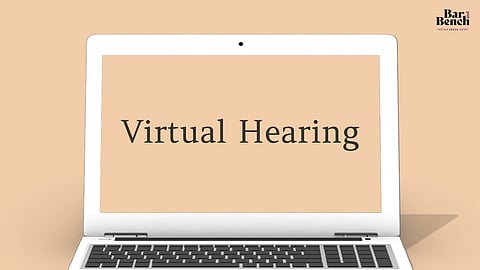
- News
- Columns
- Interviews
- Law Firms
- Apprentice Lawyer
- Legal Jobs
- हिंदी
- ಕನ್ನಡ

The Delhi High Court on Monday dismissed a public interest litigation (PIL) seeking the adoption of virtual hearings as a norm in courts across the capital [Mujeeb Ur Rehman v. Registrar General, High Court of Delhi].